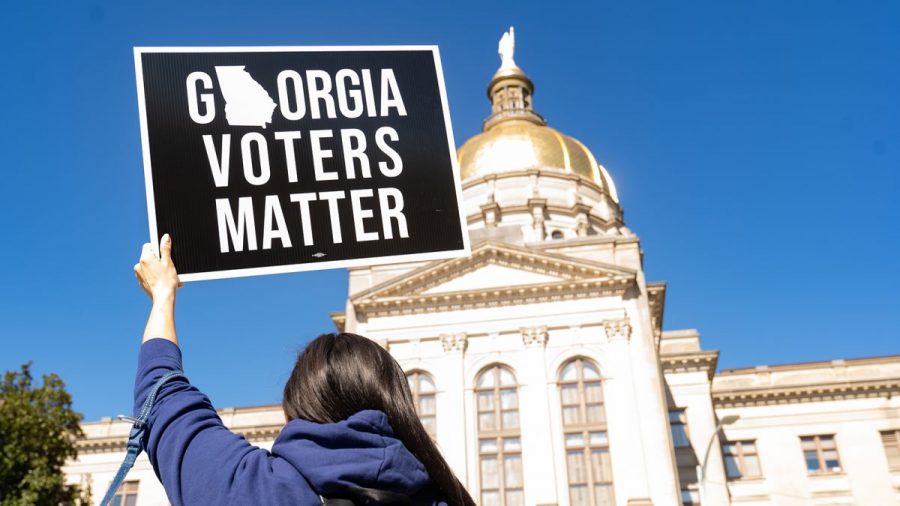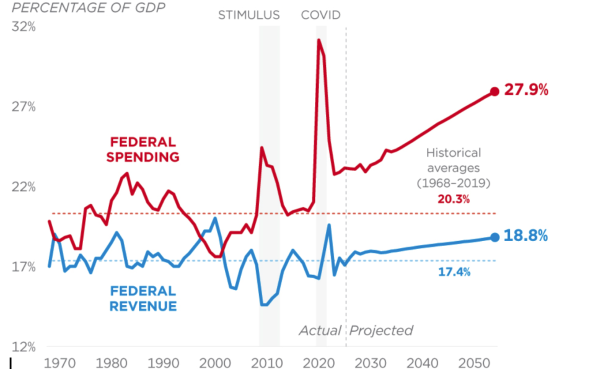Westminster community reacts to Georgia’s new voting law
On March 25, 2021, Georgia’s GOP-controlled legislature and Republican governor Brian Kemp passed a 98-page election law modifying a variety of voting practices following the 2020 presidential election, which resulted in the first Democratic victory in Georgia since 1992’s election of former president Bill Clinton. Senate Bill 202 has incited a controversial debate over voting rights, as Democrats and voting rights groups argue that the law is a Republican ploy to suppress the ballots of “blue voters” in Georgia.
“Generally, my perspective on the new law is that there are some benefits and some problems,” said junior Andrew Thompson, student leader of Young Conservatives.
The law contains new restrictions that voting rights groups claim could hinder minority groups and poorer voters from casting ballots. An ID is required for both in-person voting and mail-in voting.
“My initial reaction was that of worry because of how the law would and could impact people’s right to vote because of all the increased restrictions,” said senior Maya Smith. “I think that it will likely make it harder for some already underrepresented groups in Georgia to vote.”
The law will likely limit absentee voting by restricting the placement of secure drop boxes and by decreasing the number of days before an election for voters to request an absentee ballot, from the previous 180 days to 78 days. The law also bans food and drink distribution to voters in line by non-polling workers. If mishaps occur on an election day, the law makes it more difficult for a voting precinct to extend voting hours, as only a judge or superior court can dictate the hours of a polling location, limiting the amount of time for provisional voters to come back following problems on-site.
“While I understand extending early voting, I see no reason why less time for mail-in voting and stricter ID provisions are necessary,” said junior Whitaker Swann.
The voting law was enacted following the presidential and senate elections in Georgia, in which Democrat Joe Biden won the state by less than 12,000 votes out of nearly 5 million cast, and Democrats won both senate seats in run-off elections.
“The law also controversially gives the state more control over county election commissions and offices,” said Upper School history teacher John Terry. “This bill followed the Republican loss of Georgia’s senate seats — and hence the US senate majority– and the failed overturning of a free and fair general election in November 2020.”
Georgia-based organizations and corporations spoke out against the bill following its release, such as Delta, Coca-Cola, and Viacom CBS. Major League Baseball elected to pull July’s All-Star game out of Atlanta and relocate it to Denver as a form of protest of the bill. The MLB’s move will certainly cost Atlanta significant revenue that the All-Star game would normally bring in. President Biden backed the MLB’s choice.
“I think it’s good that the MLB took a stand against this law, and I think that because this could hurt Georgia economically in some ways, this decision could bring enough publicity and cause enough backlash to even have the law reevaluated and possibly changed,” said Smith.
“I believe that it was a good decision by the MLB, but bad for our city,” said Swann. “After Coca-Cola, CBS, and many other companies spoke out against this bill, I think it was inevitable that our city would suffer consequences.”
The Atlanta Braves move of their stadium to Cobb County, away from downtown Atlanta, serves as an example of the “ ‘white flight’ of the mid-20th century” according to Terry. Moreover, Terry said that this history laid the groundwork for what would be a public relations crisis for the MLB had they kept the 2021 All-Star game in Atlanta.
“You quite literally have to cross a bridge named for Lester Maddox, a segregationist governor, to get to the new ballpark,” said Terry. “Players might have sat out, and many more would have had pretty scathing things to say about the law.”
However, Georgia’s new law also included significant changes to improve the efficacy and security of voting. In most counties, the law will expand early voting opportunities, requiring all counties to have at least two Saturdays of early voting, a benefit to smaller counties that used to only offer one Saturday of early voting. To address long lines, the law demands that any precinct with over 2,000 voters must establish additional voting sites or add resources at the main location to reduce wait times. SB 202 will even establish a hotline for voters to file complaints over illegal activity or voter intimidation at polling sites.
“My guess is, compared to standard election years, [early voting] will increase in the share of total votes,” said Thompson.
Many worry over the impact that these changes will make on the voting population in Georgia, while some believe the repercussions of the new law will not have severe implications on their own voting practices.
“I don’t think I’ll necessarily be impacted by the changes as much because I have various forms of ID,” said Smith. “But [the changes to the law] motivate me to check my voter status more regularly to make sure nothing has changed.”
“The bill doesn’t target me,” said Terry. “I have a set of privileges that result in me having several voting options, as I do in every election.”
“I don’t believe that my vote will be affected,” said Swann. “But I know my tendency to protest will kick in after this school year ends.”





